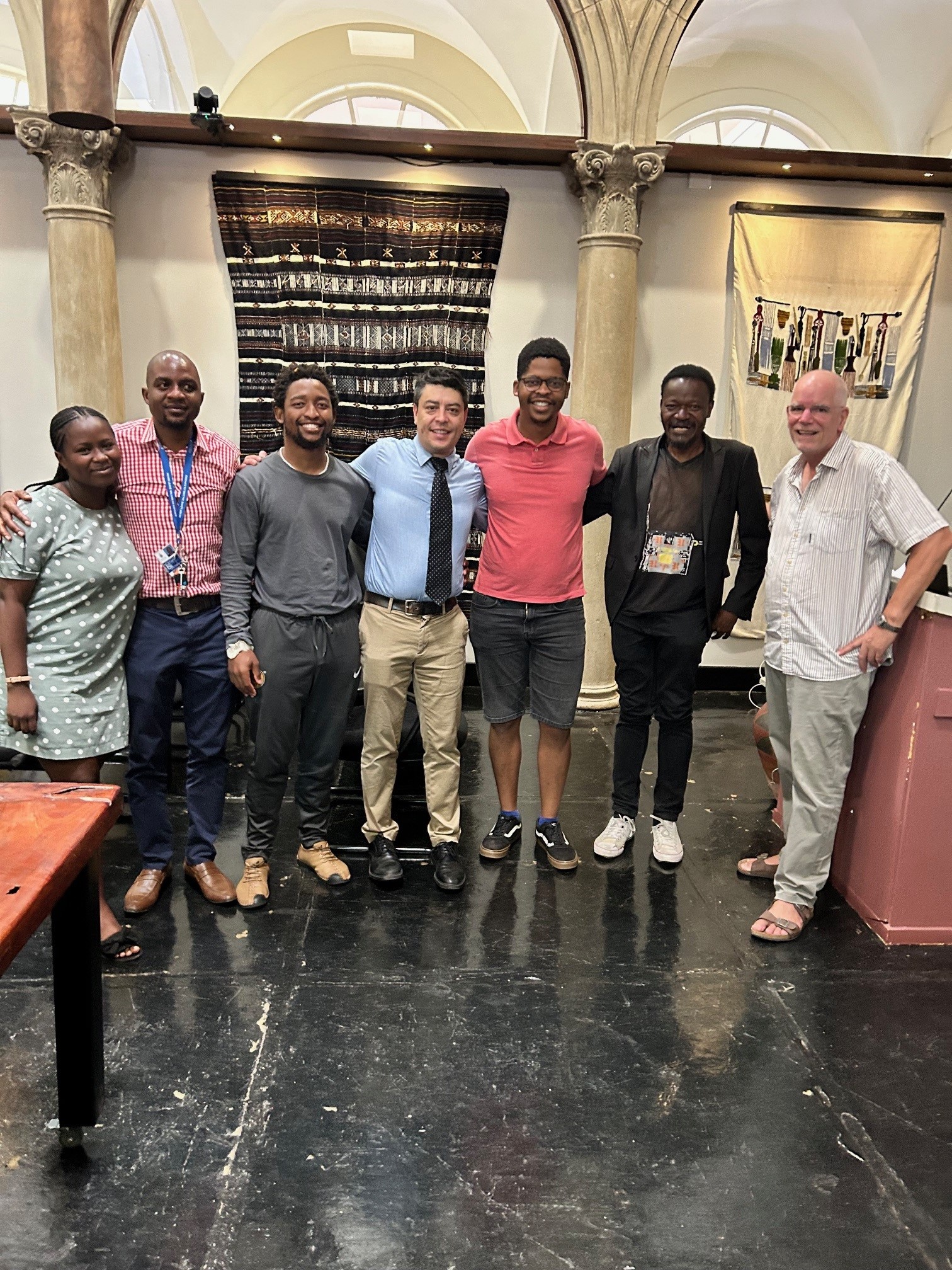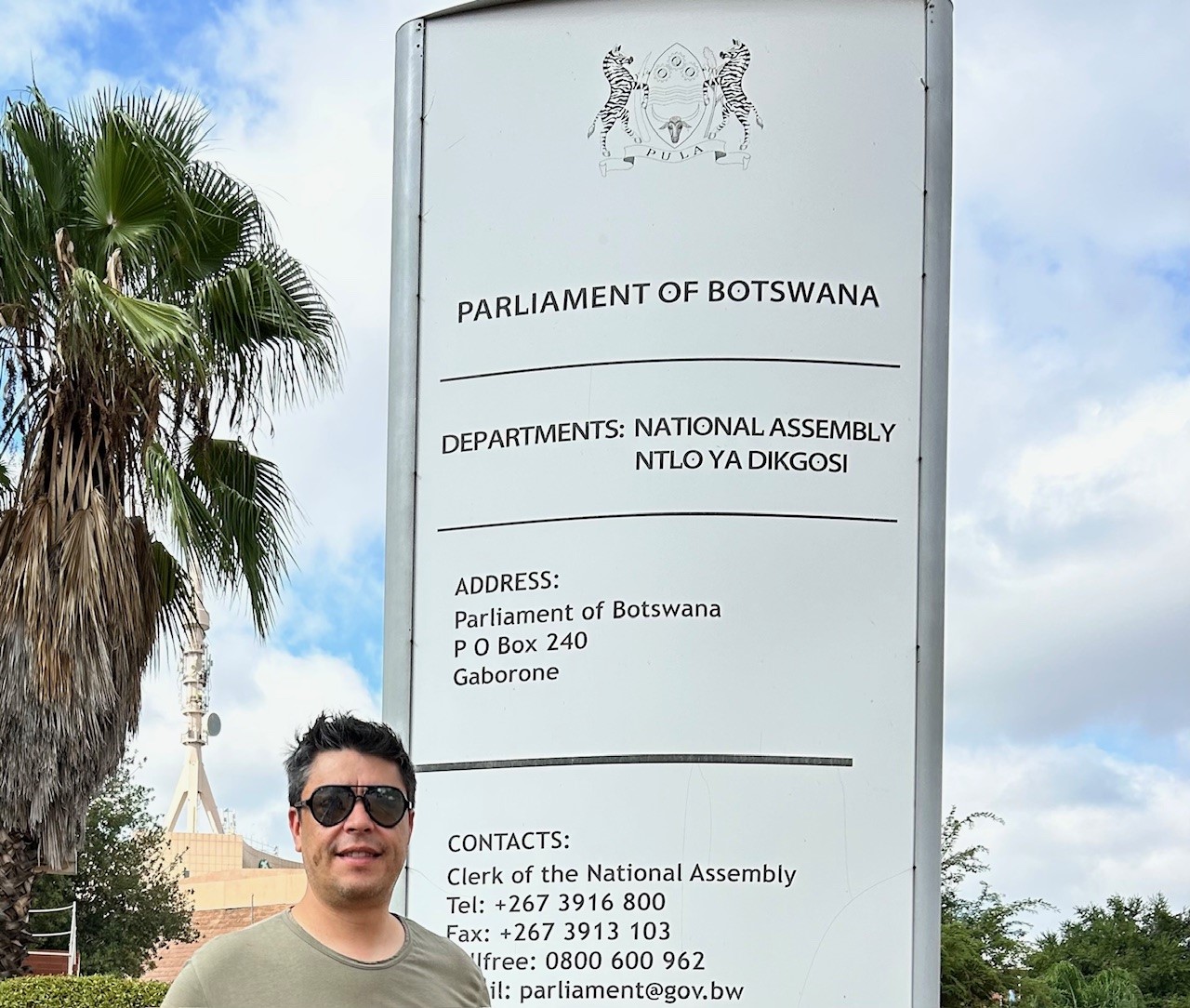- Apply
- Visit
- Request Info
- Give
Published on March 28, 2024
POLITICAL SCIENCE DEPARTMENT CHAIR GOES INTERNATIONAL
Professor Mendoza-Botelho gives talk at the University of Witwatersrand in Johannesburg-South Africa on State Use of Natural Resources to promote Social Programs

On March 7, Professor Mendoza-Botelho delivered a talk entitled “The Neo-Patrimonial State and Institution Building: Using Natural Resources to fuel Social Policies” as part of the lecture series of the Bilateral Research program between University of Witwatersrand in Johannesburg (one of the largest in South Africa with around forty thousand students) and Cambridge University in the UK coordinated by Professor Lawerence Hamilton. This lecture was attended by faculty and students from the School of Social Sciences from Wits (as this university is known) and remotely by members of the Political Theory discussion group lead by Professor Hamilton. This talk is part of a series of lectures of a group of scholars engaged in rethinking political theory from the perspective of the global South, and explore the implications of power, freedom, democracy and other areas of intellectual inquiry related to the challenges and opportunities of our time.

The talk focused on how countries with important extractive industries, like hydrocarbons and diamonds, use those resources to support long term social programs, such as healthcare and education. A prime example in the world is Norway, where the state operates and administers the wealth resulting from the exploitation of oil and other natural commodities. These resources are then used to supplement social programs as part of this country’s well-stablish welfare system. In recent times, countries like Bolivia (with a relative abundance of natural gas) and Botswana (diamonds) have seen an influx of fresh resources coming from extractive industries which have been used, partially, to support their efforts to improve health and education conditions as mechanisms to promote much needed social and economic development. On the other hand, South Africa, a country with a much-diversified economy but still reliant on key natural resources, such as coal and some minerals (historically gold) and limited social expenditure. As Professor Mendoza-Botelho argued in his talk, the level of success in these countries varies, and depends strongly on local political conditions and the quality of the bureaucracy that administers them. Some of the development literature defines the state appropriation of resources as neo-patrimonialism, although traditionally this concept has had a negative connotation because of the potential unfair appropriation by corrupt elites. One of the purposes of his trip was precisely his intentions to delve deeper into the political innerworkings in South Africa and Botswana. These efforts are part of his ongoing research on the role of the state in these countries as examples of creative statecraft. According to Professor Mendoza-Botelho the implications of his research are of high importance not only to these countries but also to other developing and even developed ones with with similar conditions of relative abundance of natural resources and unsolved social needs. This talk was possible through a the generous 2024 CSU-AAUP University Research Grant.

